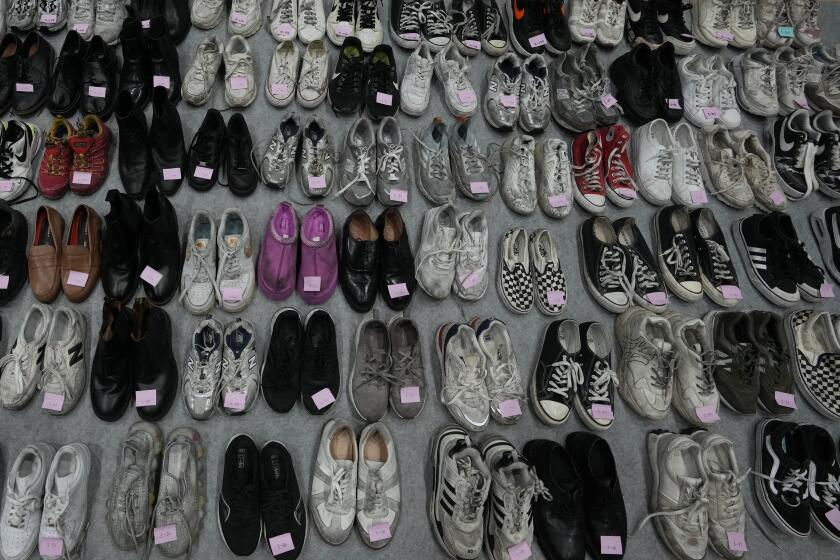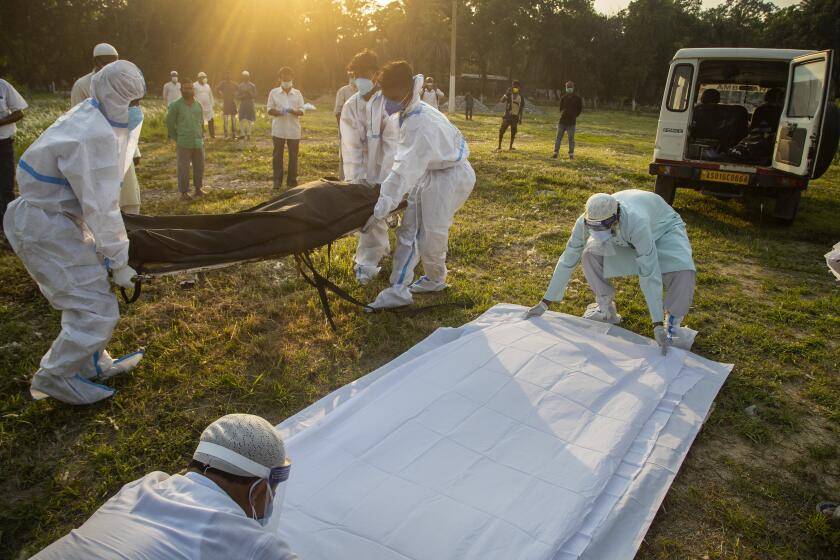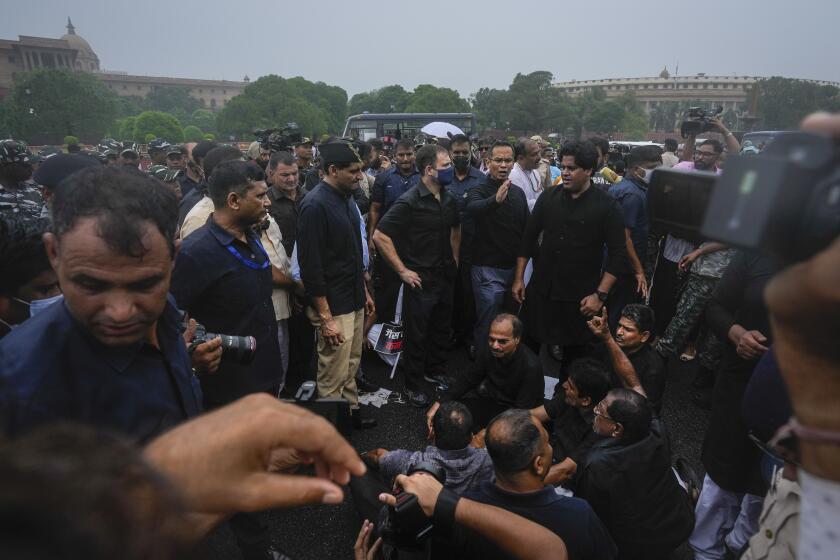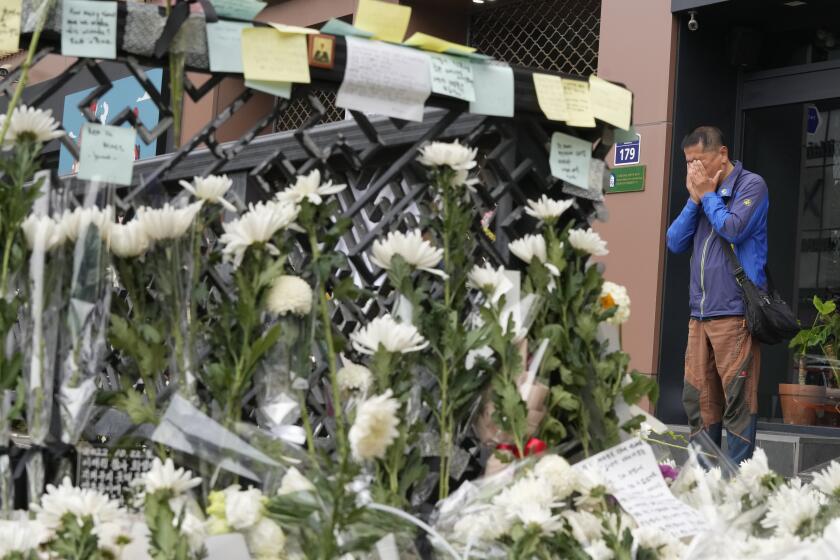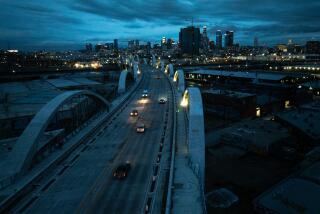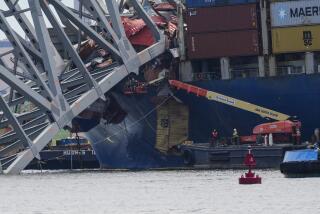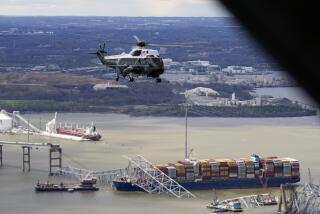‘Everyone I loved is dead’: Mourning those lost in India’s horrific bridge collapse
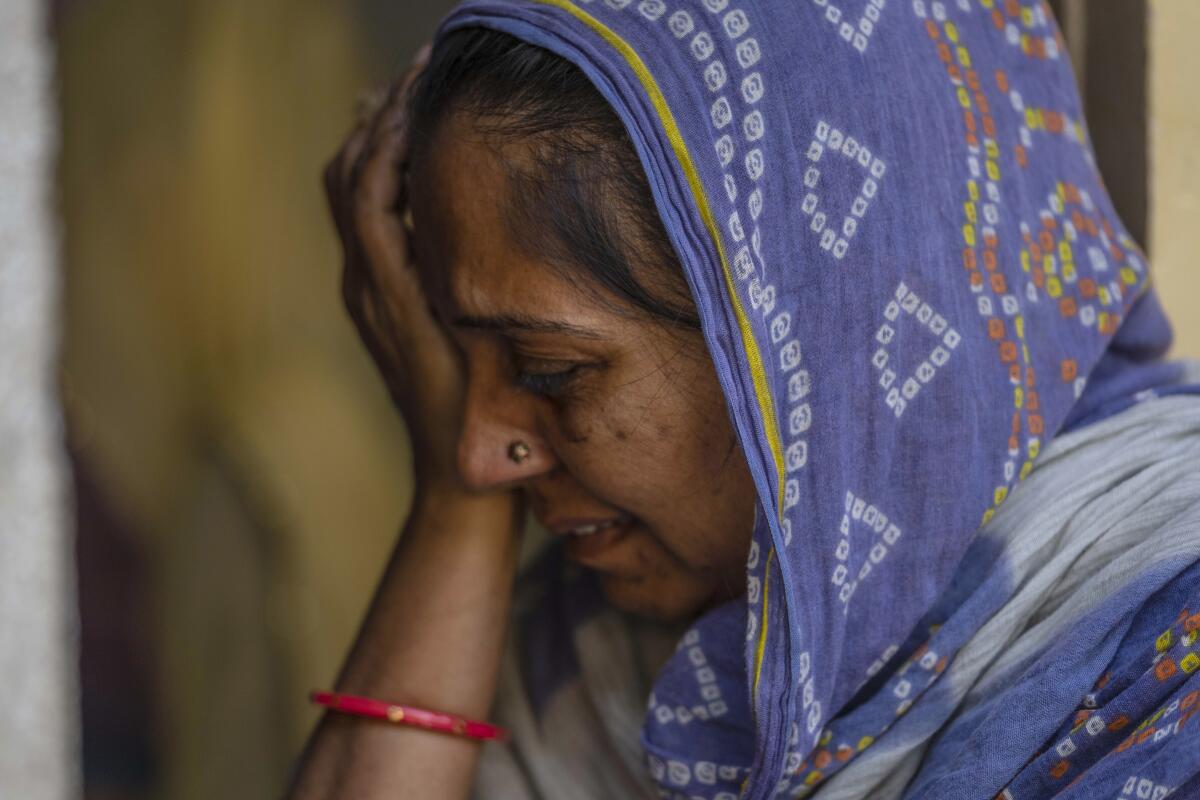
- Share via
MORBI, India — Naseema Ben Shamdar and seven members of her family were making their way across Morbi’s jam-packed suspension bridge when its cables gave way, plunging them into the deep, wide waters of Machchu river and killing 134 people.
In just seconds, Ben Shamdar was gasping for breath and trying desperately to paddle to shore, struggling through a quagmire of mud and weeds. All around her, people were pleading for help.
Some of those who fell into the weed-choked river Sunday were stuck in its deep silt. Others were knocked unconscious by the aluminum walkway that crashed into the water along with the hundreds of people who had been walking on it.
Many tried to climb cables dangling into the water, sometimes losing their grip and falling on others mired in the murky water.
The disaster in Morbi is one of India’s worst in years. The collapse of the 143-year-old pedestrian bridge while it was crowded with hundreds of holiday revelers has raised questions about why the landmark span, built in the late Victorian era of British India and touted as an artistic and engineering marvel, failed just four days after it reopened following months of repairs.
Police arrested nine people, including managers of the bridge’s operator, Oreva Group, as they began investigating the catastrophe.
Hundreds of abandoned shoes remain laid out in rows at a Seoul gym, a reminder of the chaos and tragedy of Saturday’s deadly Halloween crowd crush.
In Morbi, shock and anger have been overtaken by mourning and grief. Friends have lost friends; parents have lost children. In many cases, families have lost several members.
When she surfaced, Ben Shamdar could think only of her 21-year-old daughter, Muskan, who was nowhere in sight.
“One moment she was there with me and the next she was gone. She just disappeared in the water,” Ben Shamdar said Tuesday at her home in Morbi. By the time rescuers pulled Ben Shamdar to safety, the river had consumed every other family member who had been on the bridge that evening: her daughter, two nephews, two nieces and two sisters-in-law.
“We were eight family members there, and now I am the only one left alive,” Ben Shamdar said, her voice choking with tears. “Everyone is gone.”
The struggle highlights the fragility of India’s healthcare system as another wave of the coronavirus fueled by the Omicron variant gathers momentum.
Arif Shamdar, a painter, knows the terrible feeling.
“Everyone I loved is dead,” he said, adding that, like many others, his daughter and son were excited to visit the bridge and watch the sunset. He stayed behind, asking his wife, Aneesa, to keep their children, Aliya and Afreed, safe because he expected a huge crowd.
Barely an hour later, a relative called Shamdar to tell him of the disaster. Rushing to the site, he saw the bridge snapped in two, its metal walkway dangling. Banks on both sides of the river were strewn with bodies. For five hours, Shamdar scoured the waters searching for his family. He swam to the middle of the river. He got on an inflatable raft and screamed their names.
Distraught, he rushed to a nearby hospital where he saw his two children lying dead on stretchers. His wife was on the floor, also dead.
Breaking News
Get breaking news, investigations, analysis and more signature journalism from the Los Angeles Times in your inbox.
You may occasionally receive promotional content from the Los Angeles Times.
“I screamed and screamed and asked doctors to help. But there was nothing they could do. My family had already been dead for hours,” Shamdar said.
Hundreds of people gathered in his neighborhood Monday for the funeral. His wife, two children and niece Muskan were buried in the local graveyard. Three other family members were buried in an ancestral burial ground in a nearby town.
In the town’s crematoria and burial grounds, workers said they had never seen so many dead brought for final rites on a single day.
“I have never seen anything like this in my life,” said Gaffar Shah, caretaker of the main Muslim graveyard in Morbi. He helped bury 25 bodies Monday. “Entire families have been wiped out,” he said.
Since its independence in 1947, India has transformed from a poverty-stricken nation into one of the world’s fastest-growing economies.
All through Morbi, a city famed for its ceramic and clock industries, friends, relatives and neighbors gathered in the homes of the bereaved, emerging from the town’s narrow lanes in twos and threes.
“We are devastated,” said Raydhan Bhai, whose two nephews drowned.
Yash Devadana, 12, and Raj Bhagwanji Bhai, 13, were cousins who lived in the same house. They were good friends, too, their relatives said, always playing together and often swimming in the river.
On Sunday, the two cousins left for the bridge hand in hand. By midnight, they were both dead, having died in those same waters.
The police chief acknowledges that officers didn’t effectively handle emergency calls warning of impending disaster in Seoul’s Itaewon district.
As mourners sat beside garlanded photos of Yash and Raj on Tuesday, Raydhan Bhai pointed to Yash’s pet dog. It hasn’t eaten, waiting for Yash to return, he said.
“Yash loved the dog and even slept with it in his bed,” Raydhan Bhai said. “Even his pet has felt Yash’s absence.”
More to Read
Sign up for Essential California
The most important California stories and recommendations in your inbox every morning.
You may occasionally receive promotional content from the Los Angeles Times.
